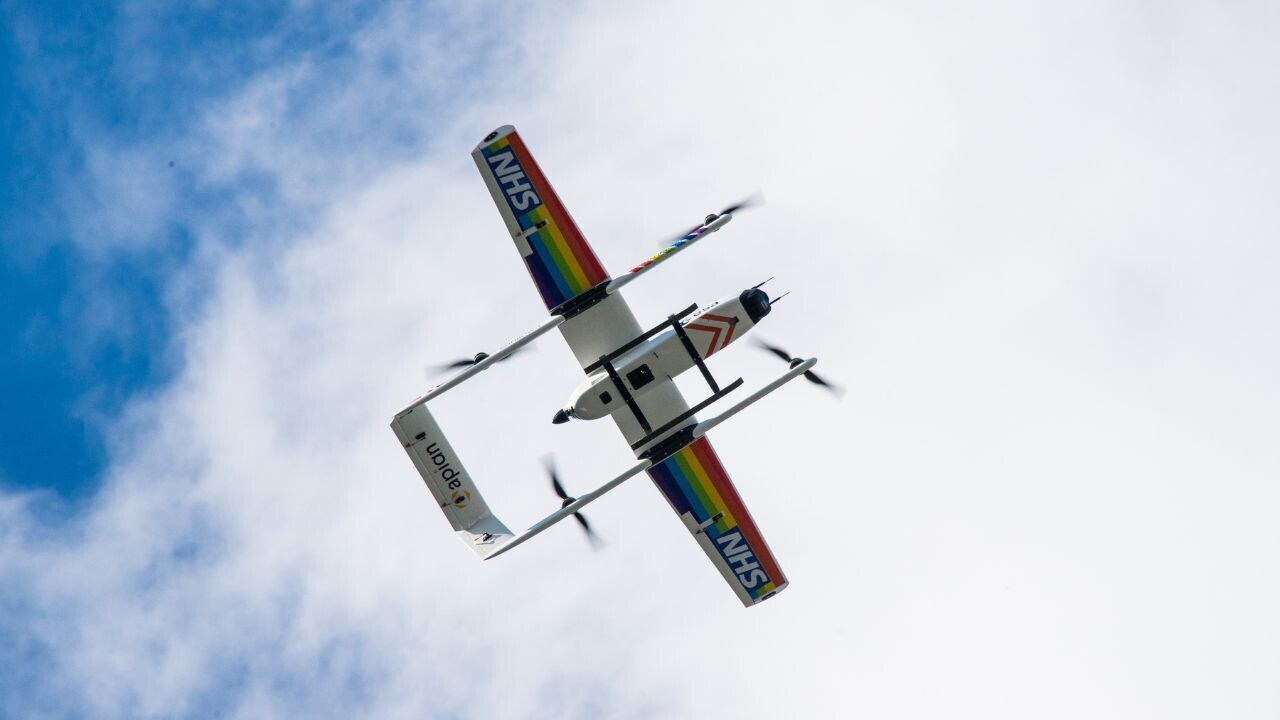
In a UK first, drones have successfully delivered blood packs, flying beyond the visual line of sight, where the pilot can no longer see them as they travel.
The flights were part of a joint trial between the NHS and healthcare logistics startup Apian. Its aim was to test the viability of blood samples following drone transport.
To do this, the research team sent 10 identical blood packs between Northumbria Healthcare NHS Foundation Trust’s Wansbeck Hospital and Alnwick Infirmary, and back again.
Five of them travelled via drone over a 68km journey in a total of 61 minutes. The other five were transported with ground vehicles across a 74.6km route, which took 68 minutes.
The team then analysed the blood samples to test if they had maintained their quality and could be used for transfusion. They found no significant differences in the biochemical and haematological properties of the blood.
“The results of this first trial are very promising, showing no compromise to the safety of the blood,” said Gail Miflin, chief medical officer at NHS Blood and Transplant.
Following this study, the NHS is now planning a series of further trials to determine if delivering medical supplies by drone is feasible. This could potentially offer a faster and greener alternative to traditional road transport.
The next trial will focus on delivering platelets, a type of blood cell that helps form clots that can slow or stop bleeding.
Building a network of medical drone transport
For its part, London-based Apian is on a mission to build the NHS’ drone delivery network.
The startup was founded in 2020 by two NHS doctors and one Google alumni. It has developed a logistics API that connects healthcare providers with the drone industry. The platform takes healthcare orders, selects drone carriers, and provides scheduling, routing, and real-time tracking.
Alongside Northumbria, Apian has been running trials in Solent and Dublin.
According to the startup’s co-founder and medical director Hammad Jeilani, this latest study demonstrates that drones have the potential to “transport critical healthcare supplies to patients, at the right time and with fewer emissions.”
Get the TNW newsletter
Get the most important tech news in your inbox each week.





